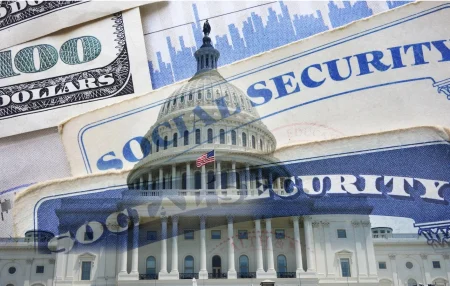Corporate Transparency Act in Limbo: Nationwide Injunction Halts Enforcement, Sparking Legal Battle and Uncertainty for Businesses
The Corporate Transparency Act (CTA), a landmark piece of legislation aimed at combating money laundering and financial crime by requiring companies to disclose their beneficial owners, has been thrown into disarray following a nationwide preliminary injunction issued by the U.S. District Court for the Eastern District of Texas on December 3, 2024. The ruling, which effectively halts the enforcement of the CTA’s reporting requirements, stems from a lawsuit filed by Texas Top Cop Shop, Inc. The court’s decision, citing concerns about the CTA exceeding Congress’s constitutional authority and imposing undue burdens on businesses, has created significant uncertainty for companies nationwide as they grapple with the implications of this unexpected legal challenge.
The CTA, enacted as part of the National Defense Authorization Act for Fiscal Year 2021, mandates that companies disclose information about their beneficial owners—individuals who ultimately own or control a company—to the Financial Crimes Enforcement Network (FinCEN). This information is intended to help law enforcement agencies identify and investigate illicit financial activities, including money laundering, terrorism financing, and tax evasion. The act was hailed as a crucial step towards greater transparency in the financial system, a key tool in the fight against financial crime. However, its implementation has now been stalled by the court’s injunction, leaving businesses in a state of limbo.
The core of the Texas Top Cop Shop, Inc. lawsuit revolves around arguments that the CTA’s reporting requirements infringe upon Fourth Amendment protections against unreasonable searches and seizures, and exceed Congress’s regulatory authority under the Commerce Clause. The plaintiffs successfully argued that the collection of beneficial ownership information constitutes an unwarranted intrusion into the privacy of business owners and places undue burdens on small businesses. They contend that the costs associated with compliance, including the time and resources required to gather and submit the required information, are disproportionately high for smaller entities.
In response to the injunction, the Department of Justice (DOJ) swiftly filed an appeal on December 5, 2024, seeking to overturn the ruling and reinstate the CTA’s reporting requirements. The DOJ argues that the CTA is a crucial tool in the fight against financial crime and that the district court’s decision undermines national security efforts. The appeal sets the stage for a protracted legal battle that will ultimately determine the fate of the CTA and its beneficial ownership reporting regime. The appellate court’s decision will have far-reaching consequences for businesses, financial institutions, and law enforcement agencies alike.
In the meantime, FinCEN has issued guidance clarifying that, as long as the injunction remains in effect, the reporting of beneficial ownership information is voluntary. Businesses are not required to comply with the original January 1, 2025, reporting deadline. This temporary reprieve provides businesses with some breathing room, but the ongoing uncertainty surrounding the CTA’s future creates significant challenges for compliance planning and risk assessment. Companies are advised to closely monitor developments in the case and prepare to comply with the reporting requirements should the injunction be lifted.
The legal challenge to the CTA highlights the tension between national security interests and individual privacy rights, and the complexities of balancing these competing concerns in the context of financial regulation. While the DOJ emphasizes the importance of the CTA in combating financial crime, critics argue that the law’s broad scope and potential for abuse raise significant privacy concerns. The ongoing litigation underscores the need for a careful and nuanced approach to regulating beneficial ownership information, one that effectively addresses the risks of financial crime while safeguarding fundamental rights. The ultimate outcome of the appeal will significantly shape the future of corporate transparency in the United States. For businesses, this means remaining vigilant, seeking expert legal advice, and preparing for the potential reinstatement of the CTA’s reporting obligations.









